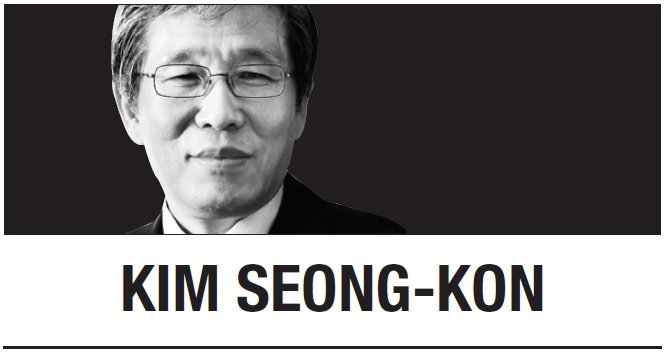
Films also drench our souls with mesmerizing melodies in their soundtracks. Some screen songs and soundtracks have become classics that people all over the world love. Older people can still recall the beautiful songs from “The Sound of Music,” “Doctor Zhivago” or “Romeo and Juliet.” They also like the rhythmic soundtracks of “Forbidden Games,” “A Man and a Woman” and “Love Story.” Young people, too, will be thrilled to hear the theme music from “Star Wars,” “Guardians of the Galaxy” and “Frozen.”
Furthermore, films provide memorable phrases that touch our hearts. Hollywood movies are especially good at it. There is at least one unforgettable phrase in every American film -- phrases that resonate with our past mistakes and light our future path like guiding constellations. Many of these phrases are perennial maxims that enlighten and guide us.
In “Forrest Gump,” for example, Tom Hanks narrates, “Life is like a box of chocolates; you never know what you’re gonna get.” Indeed, life is like a gift from heaven, like a box of various bittersweet chocolates. Whichever you get, you should be satisfied with it and accept it no matter what it is. In “Love Story,” Jennifer whispers to her boyfriend, Oliver, “Love means never having to say you’re sorry.” It may mean, if you truly love someone, you do not need to feel sorry for anything, or, once you are in love, you do not regret it. In “Cool Hand Luke,” the lonesome, defiant protagonist, Luke, shouts in a solitary prison cell, “What we’ve got here is failure to communicate!” At the end of “MI-5,” the experienced senior agent tells a naive younger agent, “The good ones tend not to last long.” Sadly, it is true. In any society, evil men seem to prosper and live long, whereas good men die early.
In movies and TV dramas, we can find many moving phrases that edify us about how to live. In “The Last Kingdom,” there is a memorable phrase: “Who you are is defined by what you do. And what you have done has given you reputation.” The protagonist of this drama is born a Saxon but raised as a Dane. As a man of a dual vision and a bicultural background, he declares, “The truth of a man lies not in the land of his birth, but in his heart.” In “Hellboy,” the protagonist, who suffers an identity crisis, narrates, “What makes a man a man? Is it his origins? The way he comes to life? I don’t think so.” Indeed, the important thing is not our origins, but what we decide and what we do. In “Braveheart,” the Scottish hero utters, “Every man dies. Not every man really lives.” It means how we live is important. In the same context, “The Godfather” tells us, “Great men are not born great, they grow great.”
In movies, we can also find famous phrases about fear. In “Accountant,” the protagonist’s father tells his autistic son, “You are different. Sooner or later, ‘different’ scares people.” Nearly all human prejudices, such as racism and xenophobia, stem from the fear of difference. In “Star Wars: The Phantom Menace,” Master Jedi Yoda teaches young Jedi Skywalker, “Fear is the path to the dark side. Fear leads to anger. Anger leads to hate. Hate leads to suffering.” In “Mission Impossible,” too, there is a phrase about fear: “Terrorists are schoolboys hoping to spread propaganda through fear.” In “The Hunger Games,” President Snow says, “Hope. It is the only thing stronger than fear.”
In some movies, we can find phrases that sound like warnings for our narrow-minded politicians. In “The Godfather Part II,” for example, we find a famous phrase by Sun Tzu: “Keep your friends close and keep your enemies closer.” Unfortunately, our belligerent politicians antagonize and persecute their political opponents, instead of embracing them. Our vengeful politicians should also listen, like the main character in “Acts of Vengeance,” to the advice of Marcus Aurelius: “The best revenge is not to be like your enemy.” Similar words of wisdom for politicians who do not learn from the past can be found in “The Lion King”: “Oh yes, the past can hurt. But you can either run from it, or learn from it.”
The best phrase may be what Charlie Chaplin says in “The Great Dictator”: “We all want to help one another. Human beings are like that. We want to live by each other’s happiness, not by each other’s misery.” Watching movies, we can learn many valuable things.
Kim Seong-kon
Kim Seong-kon is a professor emeritus of English at Seoul National University and a visiting scholar at Dartmouth College. -- Ed.


















![[Today’s K-pop] BTS pop-up event to come to Seoul](http://res.heraldm.com/phpwas/restmb_idxmake.php?idx=642&simg=/content/image/2024/04/17/20240417050734_0.jpg&u=)